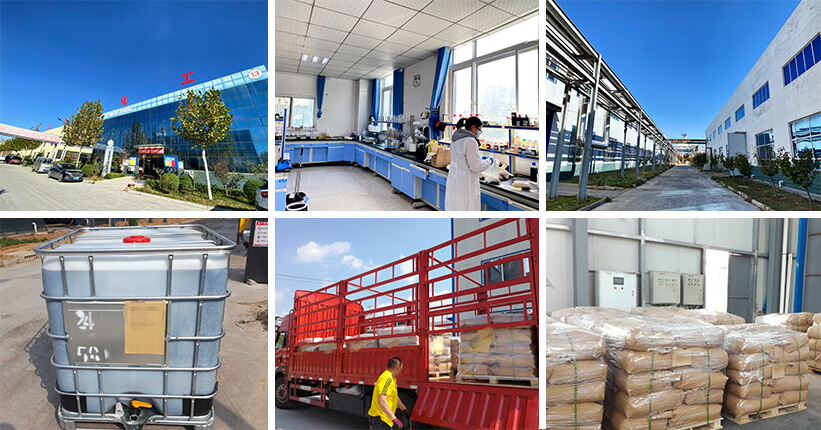
The Future of GLDA in Sustainable Industries: Revolutionizing Green Chemistry
As global industries accelerate their shift toward eco-conscious operations, GLDA (Glutamic Acid Diacetic Acid) emerges as a transformative force in sustainable chemistry. This innovative biodegradable chelating agent represents a critical evolution beyond traditional options like EDTA and NTA, offering unprecedented environmental safety without sacrificing performance. With regulatory pressures mounting and consumer demand for green products surging, GLDA stands poised to redefine sustainability across sectors from industrial cleaning to advanced recycling. The growing urgency for circular economy solutions positions GLDA not merely as an alternative, but as a cornerstone of next-generation environmental stewardship.
The Sustainability Imperative Driving GLDA Adoption
The rise of GLDA responds directly to the chemical industry’s most pressing challenge: delivering high performance without ecological compromise. Traditional chelating agents like EDTA persist in aquatic ecosystems for decades, accumulating in sediments and entering food chains. In stark contrast, GLDA undergoes complete biodegradation within 28 days under OECD 301B standards, breaking down into harmless organic compounds. Environmental toxicology studies consistently demonstrate its safety profile, with LC50 values for fish exceeding 100 mg/L – significantly higher than legacy alternatives.
Regulatory frameworks worldwide now actively favor such innovations. The European Union’s revised Detergent Regulation (EC 648/2004) increasingly restricts persistent synthetic chelators, while the US EPA’s Safer Choice program highlights GLDA-based formulations as exemplary alternatives. These policy shifts converge with corporate sustainability commitments: major manufacturers face mounting investor pressure to eliminate "forever chemicals" from supply chains by 2030.
Industry Transformations Powered by GLDA
Green Cleaning Revolution
The detergent sector’s sustainability overhaul centers on GLDA’s unique capabilities. When global phosphate bans disrupted traditional formulations, manufacturers discovered GLDA delivered superior scale inhibition in hard water while meeting stringent aquatic toxicity thresholds. Its calcium-binding capacity exceeds 300 mg/g – outperforming citrates and phosphonates – enabling concentrated eco-detergents that reduce packaging waste by 30%. Industry leaders now embed GLDA in automatic dishwasher capsules, industrial degreasers, and textile processing aids, where its thermal stability (effective up to 150°C) prevents carbonate scaling in high-temperature wash cycles.

Sustainable Agriculture Breakthroughs
Modern regenerative agriculture increasingly relies on GLDA’s dual-action chemistry. As a micronutrient transporter, it forms stable complexes with iron and zinc that resist precipitation in alkaline soils, boosting crop uptake efficiency by 40-60% compared to EDTA chelates. Simultaneously, its molecular structure enables selective heavy metal remediation: field trials show GLDA extracts 85% of bioavailable cadmium from contaminated rice paddies while leaving essential soil minerals intact. This precision supports the transition toward low-input farming systems required under the European Green Deal’s Farm to Fork strategy.
Water Treatment Reinvented
Municipalities and industrial plants now prioritize GLDA for closed-loop water systems. In desalination facilities, its anti-scaling performance extends reverse osmosis membrane lifespan by 2.3x compared to conventional polymers. More critically, its rapid biodegradation prevents the marine organism bioaccumulation associated with EDTA – a decisive advantage for coastal plants complying with the UK’s Environmental Permitting Regulations. Power plants likewise report 18% reduction in boiler blowdown frequency when switching to GLDA-based treatments, directly translating to lower water and energy consumption.
Navigating Adoption Challenges
The primary barrier remains cost differentials: GLDA commands approximately 25% price premium over EDTA. However, total cost analyses reveal compelling advantages. Textile manufacturers report 14-month payback periods through reduced wastewater treatment expenses, while detergent producers avoid non-compliance penalties exceeding €500,000 annually in regulated markets. Forward-thinking enterprises increasingly view this as strategic investment rather than expense – especially with major chemical distributors projecting GLDA price parity by 2027 as production scales.
Technical misconceptions also hinder adoption. Some engineers maintain outdated concerns about chelation stability in acidic conditions, despite peer-reviewed studies confirming GLDA’s effectiveness across pH 3-11. Industry consortia address this through open-access performance databases like the Sustainable Chelators Initiative, which documents over 200 verified industrial case studies.
The Path Forward
Market projections underscore GLDA’s strategic importance. According to Grand View Research, the biodegradable chelants segment will grow at 6.2% CAGR through 2030, with water treatment applications accounting for 38% of demand. Three convergent trends will accelerate adoption:
-
Regulatory Tipping Points – California’s SB 54 (2022) and similar legislation globally will phase out persistent synthetic chemicals
-
Green Procurement Mandates – Walmart’s Project Gigaton and Amazon’s Climate Pledge require suppliers to adopt certified sustainable chemistry
-
Circular Infrastructure Investment – The EU’s €2.1 billion battery recycling fund prioritizes hydrometallurgical innovation
For sustainability leaders, early GLDA integration delivers measurable competitive advantage. Formulators gain access to growing eco-label markets, manufacturers future-proof operations against regulatory risks, and recyclers unlock premium pricing for green-certified recovered metals.
As industries embrace this green chemistry revolution, selecting the right GLDA solution partner becomes critical. For cutting-edge formulations and technical expertise in sustainable chelating agents, connect with Yuanlian Chemical – your trusted innovation partner in driving eco-industrial transformation.

Yuanlian Chemical specializes in the production of polyaspartic acid (PASP),tetrasodium iminodisuccinate(IDS), GLDA, MGDA etc. with stable quality and excellent quantity!





Contact us